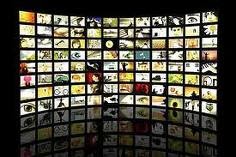The conclusions of the two books is something that most committed Christians who take their faith seriously would probably agree with—that Christianity is not doing a very good job competing in an ever-changing culture. The column points to Christianity in general has been a good thing for the advancement of society as a whole. But, in recent years, the winds of change have led to a decrease in the influence of Christianity. Some argue that Christianity is no longer relevant or capable of impacting modern society. In other words, Christianity is under siege.
These events have led Christianity into what Hunter calls a cul-de-sac mentality or what others might call a bunker mentality. I would have to agree because I have seen it firsthand. A significant part of the body of Christ now lives in what I call a Christian subculture. We now have Christian schools, clubs, movies, music, books, and theme parks. And a significant part of the homeschool movement is also Christian-based. What the article fails to understand is that Christians have created a self-fulfilling prophecy. Christian young people who are raised up in this environment lack the ability to interact or communicate with, understand, and influence today’s society and culture. They have lost their missional focus and, with that, dies the ability to spread the Gospel. We have gotten off the boat and have become fearful of the mainstream culture that we feel will overwhelm our young people and turn them away from Christ
The writers argue that this cul-de-sac mentality is a direct result of the cultural revolution of the 1960s and the two aftershocks that followed. The first aftershock is a backlash or reaction to the counterculture which led to the rise of religious conservatism and political action. The second aftershock that we are now living through is an backlash to the first backlash, which is a revolt against the association between Christian faith and conservative politics. Puttman and Campbell argue that millions of younger Americans may be abandoning organized Christianity altogether. These are painful conclusions, but the facts would indicate they are correct.
But, once again, the column fails to completely understand the situation. I’m amazed that no one seems to understand or not willing to recognize the role that media has played in shaping culture as well as how it has influenced organized Christianity. First, let’s go back to the cultural revolution and counterculture of the 1960s that so many people believe is the source of today’s problems.
The parents of baby boomers in the late 1940s and 1950s embraced a new form of consumerism which led to a new level of materialism not seen before in America. I argue that it was influenced and controlled by the new emerging media culture fed by the new technology of television. Instead of addressing issues such as racism and poverty, America entered into a self-serving society. Baby boomers by the 1960s were looking for meaning and purpose, especially the children of privilege. There had to be something more to life than just material things. They found hope in the new young president, John F. Kennedy, who talked about service and a call to action to serve mankind.
Two events clearly opened the door to the coming social revolution. And what the writers did not take into account was that television and the media culture played a significant role. The first was the loss of hope when John F. Kennedy was assonated. His presidency played out on television from the start to the very end. Those events viewed on televison had an enormous influence on the psyche of America’s young people.
A second catalyst was the Vietnam war which, once again, was played out each night in the living rooms of America. My contention is that these events made the social revolution of the 1960s possible.
But, once again, the column fails to completely understand the situation. I’m amazed that no one seems to understand or not willing to recognize the role that media has played in shaping culture as well as how it has influenced organized Christianity. First, let’s go back to the cultural revolution and counterculture of the 1960s that so many people believe is the source of today’s problems.
The parents of baby boomers in the late 1940s and 1950s embraced a new form of consumerism which led to a new level of materialism not seen before in America. I argue that it was influenced and controlled by the new emerging media culture fed by the new technology of television. Instead of addressing issues such as racism and poverty, America entered into a self-serving society. Baby boomers by the 1960s were looking for meaning and purpose, especially the children of privilege. There had to be something more to life than just material things. They found hope in the new young president, John F. Kennedy, who talked about service and a call to action to serve mankind.
Two events clearly opened the door to the coming social revolution. And what the writers did not take into account was that television and the media culture played a significant role. The first was the loss of hope when John F. Kennedy was assonated. His presidency played out on television from the start to the very end. Those events viewed on televison had an enormous influence on the psyche of America’s young people.
A second catalyst was the Vietnam war which, once again, was played out each night in the living rooms of America. My contention is that these events made the social revolution of the 1960s possible.
The article continues to make a point that Christianity as a result of the cultural revolution now defines it’s mission primarily in terms of conflict with the culture and expresses itself almost exclusively in the language of loss, disappointment, anger, resentment and a desire for conquest. They contend that Christianity is not competing with rival faiths but is now dealing with a host of pseudo-Christian spiritualities where the ideas of a single religious truth seem increasingly passé.
For committed Christians, this is a painful truth. Could the Faith be undermined from within? The authors have failed to see that Christianity through the influence of the mass media culture now reflects the same values and philosophies that are communicated through today’s media culture. In some ways, the market-driven church is helping to spread a new form of Christianity which could be in conflict with traditional Biblical values. By doing so, perhaps some Christians may be indirectly helping to change the culture into something that can undermine the authentic authority of the Christian faith.
And, finally, Douthat argues that Christianity needs to find a way to thrive in a society that looks less and less like any sort of Christendom and must now deal with a more diverse and complicated society and culture of the Roman Empire where the seeds of Christianity began to flourish some 2,000 years ago. But I say, if that’s going to happen, we are going to have to find our way in this new Roman Empire. And forget about battling the culture or even the media culture. We must first examine what we believe and why we believe it. We are not going to change the world until we are willing to change ourselves. That means coming to terms with the seeds of the cultural revolution, political and religious conservatism, and the pseudo-Christian spiritualities that seem to be spreading from within.
For committed Christians, this is a painful truth. Could the Faith be undermined from within? The authors have failed to see that Christianity through the influence of the mass media culture now reflects the same values and philosophies that are communicated through today’s media culture. In some ways, the market-driven church is helping to spread a new form of Christianity which could be in conflict with traditional Biblical values. By doing so, perhaps some Christians may be indirectly helping to change the culture into something that can undermine the authentic authority of the Christian faith.
And, finally, Douthat argues that Christianity needs to find a way to thrive in a society that looks less and less like any sort of Christendom and must now deal with a more diverse and complicated society and culture of the Roman Empire where the seeds of Christianity began to flourish some 2,000 years ago. But I say, if that’s going to happen, we are going to have to find our way in this new Roman Empire. And forget about battling the culture or even the media culture. We must first examine what we believe and why we believe it. We are not going to change the world until we are willing to change ourselves. That means coming to terms with the seeds of the cultural revolution, political and religious conservatism, and the pseudo-Christian spiritualities that seem to be spreading from within.






